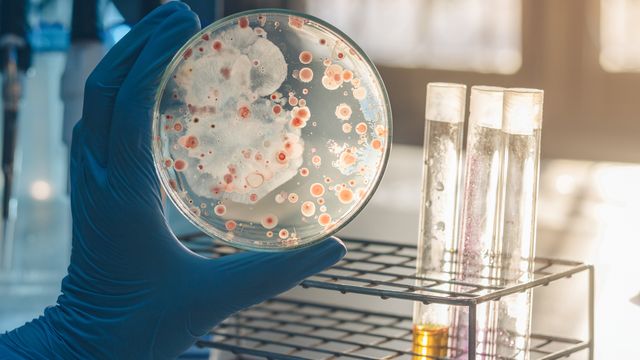Microbial Spoilage Testing in Dairy Products
The dairy industry is a cornerstone of global nutrition and economy. Ensuring the safety and quality of dairy products is paramount, not only to protect consumer health but also to maintain brand integrity. Microbial spoilage can lead to significant economic losses due to product recalls or withdrawals from the market. This service focuses on identifying potential microbial contaminants that contribute to spoilage in dairy products.
Microbial spoilage testing involves a series of laboratory procedures designed to detect and quantify microorganisms responsible for spoilage, such as lactic acid bacteria, yeasts, and molds. These organisms can alter the sensory properties (taste, texture) and shelf life of dairy products, leading to economic losses and potential health risks.
The testing process begins with the collection of samples from various stages of production or storage. Samples are then prepared using appropriate media, which support the growth of specific microorganisms. Culturing techniques allow for the isolation and identification of spoilage-causing organisms. Advanced molecular methods can also be employed to detect microbial communities more precisely.
Microbial culture testing is a critical component in ensuring the safety and quality of dairy products. It helps in understanding the microbial ecology of dairy environments, which is essential for implementing effective control measures. This service ensures that dairy producers have reliable data on spoilage organisms, enabling them to make informed decisions regarding production processes.
The methodologies employed in this testing are based on international standards such as ISO 6803 and ASTM E2579. These standards provide the necessary framework for ensuring consistent and accurate results across different laboratories. The use of validated culture media and standardized procedures ensures that the test results are reliable and reproducible.
In addition to detecting spoilage organisms, this service also involves assessing the presence of opportunistic pathogens that can contaminate dairy products during processing or storage. These include Listeria monocytogenes, Salmonella spp., and Escherichia coli O157:H7. The detection of these pathogens is crucial for maintaining public health standards.
The testing process also includes the evaluation of product shelf life under various conditions such as temperature, humidity, and packaging materials. This information helps in optimizing storage and distribution strategies to minimize spoilage. By understanding the microbial dynamics in dairy products, producers can implement targeted interventions that enhance product quality and safety.
Scope and Methodology
The scope of this service encompasses a comprehensive approach to identifying and quantifying microorganisms responsible for spoilage in dairy products. The methodology involves the following key steps:
- Sample Collection: Samples are collected from various stages of production or storage, including raw milk, fermented dairy products, and processed dairy goods.
- Sample Preparation: Samples undergo initial processing to ensure they are suitable for culturing. This may include dilution, homogenization, or centrifugation.
- Culturing: The prepared samples are inoculated onto selective media that support the growth of spoilage organisms. These media are designed to isolate specific groups of microorganisms such as lactic acid bacteria and yeasts/molds.
- Identification: Once isolated, the microbial colonies are identified using various methods including biochemical tests, PCR-based techniques, and mass spectrometry.
- Data Analysis: The results are analyzed to determine the presence, types, and levels of microorganisms responsible for spoilage. This information is then used to develop control strategies aimed at minimizing microbial contamination.
Industry Applications
- Dairy Product Quality Control: Ensuring that dairy products meet stringent quality standards by identifying and eliminating spoilage-causing microorganisms.
- Supply Chain Management: Monitoring the microbial content of raw materials to prevent contamination during transportation and storage.
- New Product Development: Assessing the microbial stability of newly developed dairy products before market release.
Quality and Reliability Assurance
The quality and reliability assurance of this service are ensured through stringent adherence to international standards such as ISO 17025. This ensures that the laboratory meets the highest quality requirements for technical competence.
- Certification: The laboratory holds relevant certifications from recognized bodies, ensuring compliance with industry best practices.
- Continuous Improvement: Regular audits and reviews of processes are conducted to identify areas for improvement and enhance the quality of service delivery.





